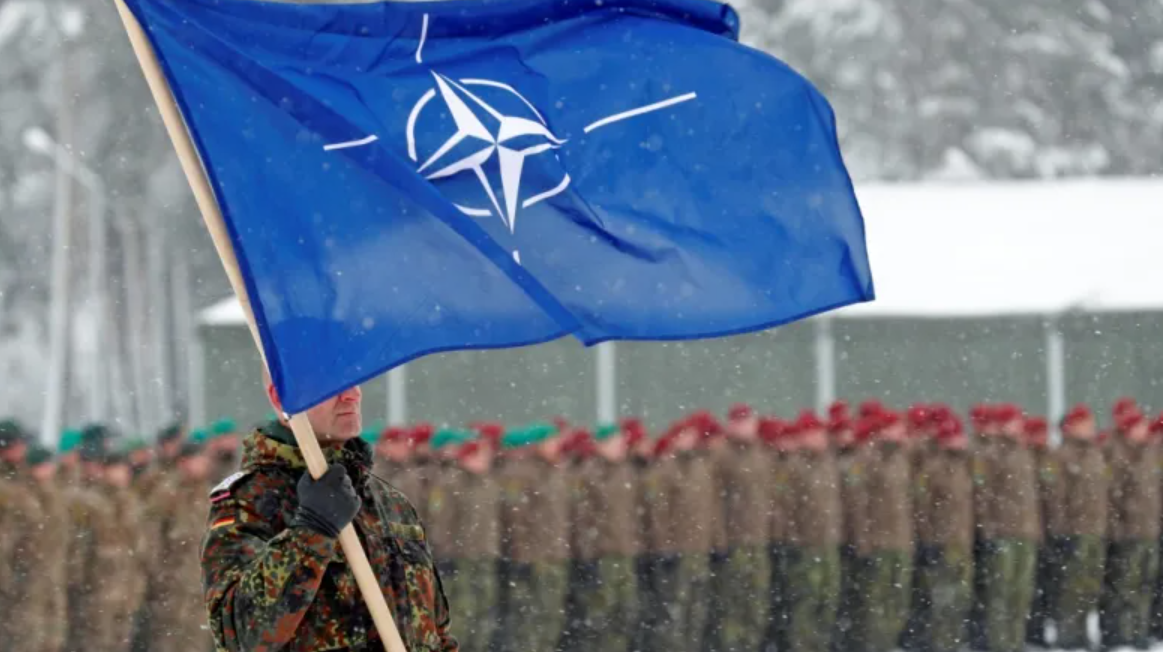Wed Aug 10, 2022
Wednesday / August 10
Biden signs CHIPS act
US President Joe Biden on Tuesday signed a bipartisan bill that aims to strengthen American competitiveness with China by investing billions of dollars in domestic semiconductor manufacturing and science research.
The bill, dubbed the Chips and Science Act, includes more than $52 billion for U.S. companies producing computer chips, as well as billions more in tax credits to encourage investment in semiconductor manufacturing. It also provides tens of billions of dollars to fund scientific research and development and to spur the innovation and development of other U.S. tech.
The Biden administration also contended that the legislation will “unlock hundreds of billions more” in private spending in the industry. The White House said Tuesday that multiple companies, “spurred” by the chips bill, have announced more than $44 billion in new semiconductor manufacturing investments.
Europe's gas issues
The flow of oil along a key pipeline transporting Russian crude to central Europe has been halted amid a row over payments.
The southern branch of the Druzhba pipeline, which takes Russian oil across Ukraine to refineries in Slovakia, the Czech Republic and Hungary, stopped pumping five days ago, Russia’s state-owned pipeline operator Transneft said in a statement on Tuesday.
According to Transneft, Ukraine cut off the flow after a payment for transit fees was blocked because of problems related to the implementation of EU sanctions. The Russian company pays Ukraine’s state-owned UkrTransNafta a monthly fee in advance to use the pipeline, worth about $15mn last month.
Transneft said the European banks that process the payment had not received the required approval this time, claiming that EU regulators “have yet to form a common position” on how or whether the banks should allow the transactions.
The EU has banned transactions involving Russian state-owned entities, including Transneft, although this does not apply to the import or transport of oil and gas into the bloc. An EU official said the European Commission was looking into the issue but declined to comment further.
Jobs market
U.S. worker productivity in the second quarter fell at its steepest pace on an annual basis since 1948 when the Labor Department began tracking it.
Nonfarm productivity, which measures hourly output per worker, fell at a 2.5% pace from a year ago, the department said on Tuesday. It also declined sharply in the second quarter at a 4.6% annualized rate, after having declined by an upwardly revised 7.4% in the first three months of the year.
Hours worked increased at a 2.6% rate in the second quarter.
Wall Street
The Nasdaq closed down on Tuesday after a dismal forecast from Micron Technology pulled chip makers and tech stocks lower. Investors await U.S. inflation data that could lead the Federal Reserve to further tighten its efforts to curb inflation.
The Dow Jones Industrial Average fell 58.13 points, or 0.18%, to 32,774.41, while the S&P 500 lost 17.59 points, or 0.42%, to 4,122.47 and the Nasdaq Composite dropped 150.53 points, or 1.19%, to 12,493.93.
NATO expansion
U.S. President Joe Biden on Tuesday signed documents endorsing Finland and Sweden's accession to NATO, the most significant expansion of the military alliance since the 1990s as it responds to Russia's invasion of Ukraine.
Biden signed the U.S. "instrument of ratification" welcoming the two countries, the final step for their endorsement by the United States. The U.S. Senate backed the expansion by an overwhelming 95-1 last week.
